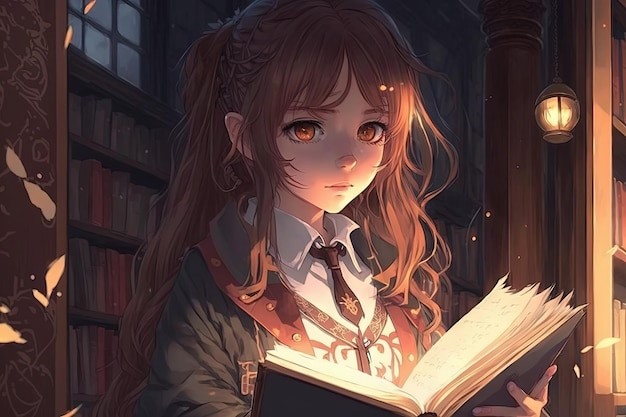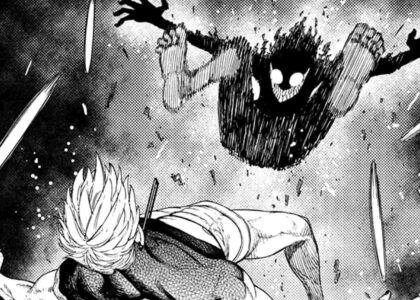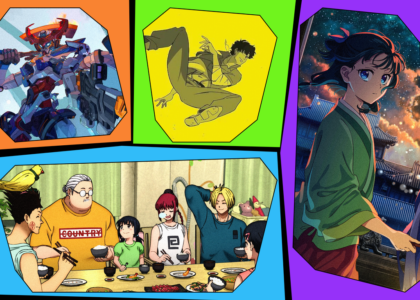A recent report from NHK World-Japan discusses the growing use of generative AI in the anime and manga industries to streamline production processes, enabling creators to concentrate more on the creative side of their work.
The report, released on December 9 via NHK’s YouTube channel, noted, “Manga and anime are a big part of Japanese culture. But they require a huge amount of work to produce. Now, AI is taking on some of that work, so humans can focus on the creative side.”
Generative AI and Anime
The NHK report highlighted the Nagoya-based studio K&K Design, known for projects like Napping Princess and After School Dice Club, and its use of generative AI to produce in-between animation frames.
According to the studio, a process that would normally take one to two weeks has been reduced to just four to five hours with the aid of AI. The only input required from the staff is the necessary prompts along with the starting and ending frames, and the AI takes care of the rest, such as animating a character’s movement from one point to another. However, K&K Design ensures that all AI-generated work is reviewed and refined by human staff to maintain the quality.
“We always make sure a human checks, retouches, or adds to the work. As creators, we don’t want to rely too heavily on generative AI. However, we believe AI can save significant time, so we can use that time for more creative things,” Hiroshi Kawakami, a director at the studio said.
The report also mentioned that AI was being used to translate real-world movements into animation – a technique that resembled Snapchat-style filters but is thought to hold great potential.
An August 2024 report by Nikkei further detailed how K&K Design utilized generative AI to speed up the background coloring process. According to that report, tasks that would normally take a week were completed in just five minutes with AI assistance.
Kawakami described the studio’s approach as a collaborative effort with AI, aimed at enhancing the working environment while preserving production quality.
In addition, K&K Design incorporated generative AI in an animated sequence for the eighth episode of the live-action Trillion Game series, which aired in September 2023.
Generative AI in the Manga Industry
The NHK report also highlighted 70-year-old manga creator Yoshimi Kurata, renowned for his work Aji Ichi Monme. He discussed how generative AI has helped extend his ability to create manga.
Kurata explained that while his drawing speed has slowed with age, the assistance of AI could enable him to continue working for another decade, rather than just five more years.
The AI helped him with tasks like completing backgrounds, coloring, and refining sketches, allowing Kurata to focus more on storytelling and the creative aspects of his work.
The August 2024 Nikkei report also shed light on a Tokyo-based digital manga production company, en-dolphin, which is developing generative AI technology to assist manga creators.
This AI learns from a creator’s previous works to replicate illustrations and simplify the drawing process. However, the company stressed the importance of strict copyright management, ensuring that the AI only learns from artists who have given explicit permission.
The en-dolphin website states that its service is a “custom-made AI that will not operate without the permission of the manga creator holding the copyright, and the creator maintains full control over all learning outcomes.”
En-dolphin demonstrated its AI system by showcasing how it transformed rough sketches from artists such as Yoshimi Kurata and Dong-Hwa Kim into polished, colored illustrations.
Although the technology could potentially reduce the need for manga assistants, the company emphasized that its system prioritizes the protection of artists’ copyrights and the preservation of originality.
Beyond enhancing production workflows, generative AI is also being used to address challenges like piracy in the anime and manga industries.
The Japanese government has launched a $2 million USD pilot program to develop AI that can detect and report pirated content.
Additionally, major industry players are exploring AI to expand their global presence. For example, Sony is using AI to boost anime production efficiency, cutting costs while increasing output.
Japan has also made significant investments in an AI-powered manga translation company, aiming to speed up translation processes and increase the number of titles being exported worldwide.









